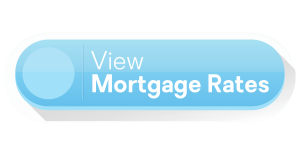While inflation has now likely peaked, we will still be dealing with the repercussions from these heightened levels for a while before things balance out. As inflation is corrected, we are also seeing home prices moving back to normal post-pandemic era.
However, we are still anticipating some final rate hikes from the Bank of Canada coming into the fall.
With that in mind, now is an important time to discuss what this means for your mortgage – specifically in regards to trigger points. Another increase in rates on the horizon will put many variable-rate borrowers near their mortgage trigger points – even for fixed payments.
While static payment variable-rate mortgages are not designed to fluctuate with prime, the reality is that a mortgage payment consistent of two components: your principle and your interest. With the existing rates and subsequent increases expected in the fall, the amount paid towards principle has decreased with an increase in the amount of interest on a static mortgage. For instance, if you are paying $2000 a month on your mortgage, only $200 might be going towards the principle with the rest covering interest. An additional increase to the interest rate, means that your interest portion will spike again and may actually exceed your total payment. When this occurs, it is called hitting your trigger rate.
You can calculate your own trigger rate with the following formula: (Payment amount X number of payments per year / balance owing) X 100) to get your trigger rate in percentage.
If you have reached your trigger rate, don’t panic. You are certainly not alone and there are options:
- Adjust Your Payment: Firstly, you may choose to adjust your payment amount to ensure that you still have some going towards your principal balance.
- Review Your Amortization Schedule: Consider switching your amortization schedule from 20-year to 25-year which would be ideal if you already have equity in your home. However, if you’re already at your maximum amortization for your lender (i.e. 30-year mortgage), you would need to increase your payment.
- Switch to a Fixed-Rate Mortgage: Many borrowers are now choosing to opt for a fixed-rate mortgage to avoid the issue of increased interest and trigger rates. Keep in mind, depending on your mortgage product, you may face penalties if you switch your mortgage mid-term. Be sure to discuss any mortgage changes with me before going ahead.
- Pay Off Your Mortgage: The final option that is always there is for you to pay off your mortgage entirely. Though don’t fret if this is not possible!
While I understand words like “inflation” and “trigger rates” can be scary, as your dedicated mortgage professional I am here for you. I would be happy to discuss any concerns you have or help explain in more detail how these changes may impact your mortgage and what your options are.
If you have questions about how a Purchase Plus Improvements Mortgage could work for you or are considering taking this route for your next home, please do not hesitate to reach out to a Dominion Lending Centres mortgage professional for expert advice!


